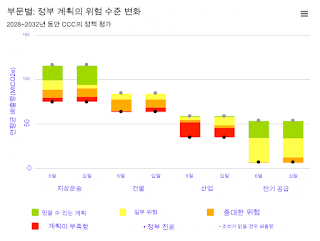"Assessing the UK's Progress on Net Zero: Challenges and Policy Shifts"
In June 2023, the Committee on Climate Change (CCC) delivered a progress report to the UK Parliament, shedding light on the challenges and gaps in achieving the nation's emissions reduction targets. It pointed out the risks and policy deficiencies, warning that the UK was veering off course from its Nationally Determined Contribution (NDC) commitment under the UN process to reduce emissions by 68% by 2030. Recent developments, including Prime Ministerial announcements, have significant implications for future emissions targets.
Since June, several critical developments have unfolded, impacting the feasibility of reaching these targets. A landmark agreement was reached to electrify steelmaking at Port Talbot, and the UK emissions trading scheme (ETS) now has a new cap. Legislation has brought the Zero Emission Vehicle (ZEV) mandate to life, but Auction Round 5 (AR5) for Contracts for Difference (CfDs) failed to attract offshore wind project bids. Additionally, the Prime Minister's recent announcements included exemptions and delays for phasing out fossil-fueled cars and boilers, along with a decision not to regulate improved energy efficiency for rented homes.
However, these announcements lacked accompanying estimates of their impact on emissions or supporting evidence, raising concerns. The CCC emphasizes the need for transparency in updating policy impact assessments when major announcements are made. The CCC has conducted its independent assessment of how these developments might influence the nation's ability to meet its targets.
Key Messages:
- Positive strides have been made since June, notably the ZEV mandate and the agreement for industrial electrification at Port Talbot. Aligning the ETS cap with Net Zero is also a significant step. Commitments to spatial energy infrastructure planning and changes to electricity grid connections are promising, pending further details.
- Nevertheless, some developments reduce policy ambition and suggest a loosening of Net Zero commitments, especially in the decarbonization of buildings. Changes to fossil boiler phase-outs make it harder to reach the government's sectoral pathway. The 20% exemption will affect emissions until 2050, creating uncertainty for consumers and supply chains.
- Delaying the fossil car phase-out has limited direct emission impact, but it introduces uncertainty for consumer targets and potential setbacks in the electric vehicle transition.
- The failure to award contracts for offshore wind in AR5 must be addressed, given the essential role of offshore wind in achieving Net Zero.
- Changes to Net Zero messaging may undermine consumer confidence and supply chain development, particularly in building decarbonization.
- The long-term outlook for Net Zero is challenged by policy shifts, especially in buildings decarbonization. The 20% exemption from fossil boiler phase-out introduces significant residual emissions in 2050. The cancellation of some Net Zero measures may increase household energy bills and motoring costs.
- While the ETS cap aligns with Net Zero, it could be more ambitious to further reduce emissions in sectors not covered by the UK ETS.
Considering all recent developments, the CCC maintains that the UK is unlikely to meet its NDC to reduce emissions by 68% between 1990 and 2030. The percentage of insufficient plans is now 17%. Additionally, changes to emissions savings and policy risks for 2030 have been identified, affecting different sectors and prospects for industrial decarbonization, transport decarbonization, and renewable electricity generation.
In conclusion, policy adjustments are essential to ensure that the UK stays on track to achieve its emissions targets and reinforces its leadership on climate change ahead of COP28.
#NetZero, #ClimateChange, #EmissionsReduction, #EnvironmentalPolicy, #UKGovernment, #ClimateGoals, #GreenEnergy, #Sustainability


